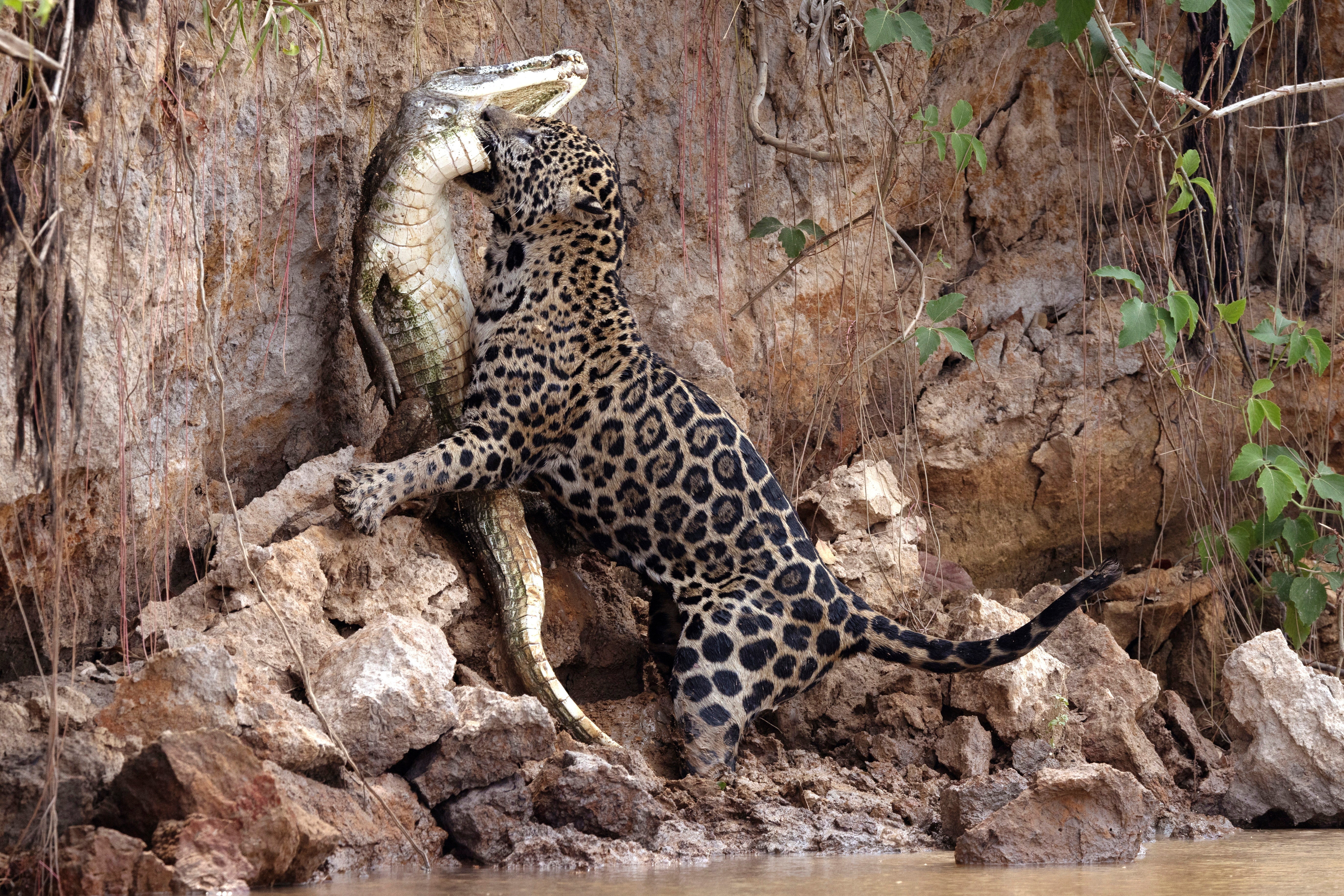Caiman-eating jaguars survive fires in Brazil’s Pantanal wetlands
Brazilian Jaguars have survived the devastating fires in the world’s largest tropical wetlands

Your support helps us to tell the story
From reproductive rights to climate change to Big Tech, The Independent is on the ground when the story is developing. Whether it's investigating the financials of Elon Musk's pro-Trump PAC or producing our latest documentary, 'The A Word', which shines a light on the American women fighting for reproductive rights, we know how important it is to parse out the facts from the messaging.
At such a critical moment in US history, we need reporters on the ground. Your donation allows us to keep sending journalists to speak to both sides of the story.
The Independent is trusted by Americans across the entire political spectrum. And unlike many other quality news outlets, we choose not to lock Americans out of our reporting and analysis with paywalls. We believe quality journalism should be available to everyone, paid for by those who can afford it.
Your support makes all the difference.Bold, Brazil’s well-known jaguar, has gained attention on social media for his impressive dives into rivers to catch caimans.
The powerful feline and fellow jaguars have survived the devastation brought by the worst fires in the Pantanal, the world’s largest tropical wetlands, which have engulfed over 16 per cent of the region this year alone.
Around 25,000 square kilometres (9,650 sq miles), an area equivalent to the US state of Maryland, have been wiped out by the blaze.
Unlike many animals that fell victim to the flames, jaguars are adept at seeking refuge along riverbanks, where they can find sustenance in the form of caimans and capybaras.
Bold, or Ousado in Portuguese suffering second-degree burns to his paws during a fire in 2020.
After being airlifted to a rehabilitation centre, he made a remarkable recovery and returned to the wild just a month later.
“He is doing very well, super healthy and hunting every day,” said wildlife ecologist Abbie Martin, head of the Jaguar ID Project, a non-profit group. “He has been through so much. I tell tourists ‘If you see him, give him a round of applause.”
While the Pantanal faces dire ecological threats, including rampant fires and drying wetlands that have turned vast areas into graveyards for wildfire, the jaguar population is surprisingly on the rise.
Martin, who has studied Brazil’s largest feline for over a decade, reports stability in the male population, with a notable increase in females and cubs in Encontro das Aguas state park, a critical refuge.
“In 2021, the year after the mega fires, we saw 17 females with their cubs in the park, where prey is abundant and there are plenty of males to mate with,” said Martin, whose team registers 90-120 different jaguars each year and estimates their population in the park at around 1,670.
As the largest in the Americas, jaguars can grow up to 170cm Ilength, with males weighting as much as 150kg. However, their future hangs in the balance.
As Cristina Gianne, from the NEX rehabilitation centre, warned the Pantanal faces threats from deforestation and climate change, jeopardising the rivers that serve as critical safe havens for the animals.
Scientists believe Bold’s continued presence in the Pantanal, easily identifiable by the collar he wears from his rescue, is a hopeful sign.
“He is hunting like never before,” Ms Gianni said.
Reuters contributed to this report
Join our commenting forum
Join thought-provoking conversations, follow other Independent readers and see their replies
Comments